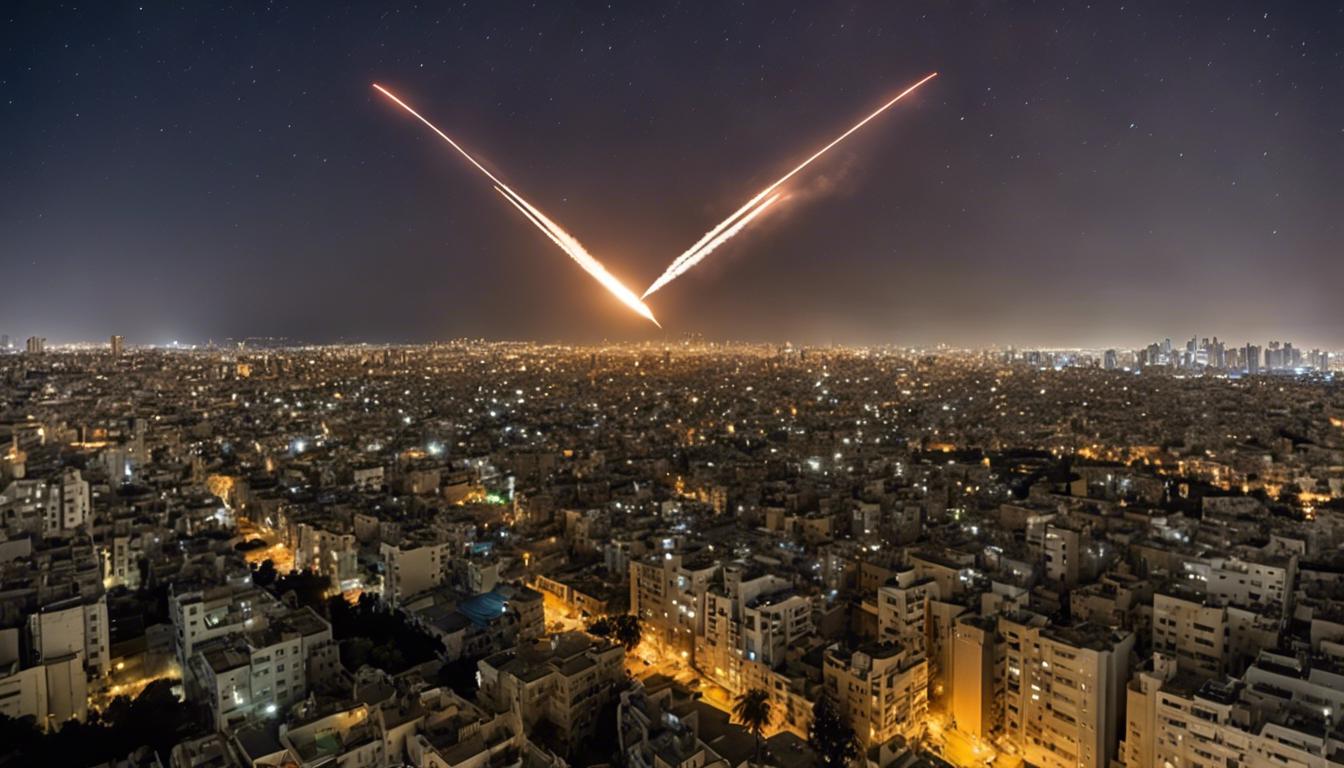Iran’s large-scale assault on Israel using 300 drones and missiles marks a significant escalation from covert tensions to open hostility, with international powers urging caution to avoid further conflict.
On April 14, 2024, tensions between Israel and Iran escalated dramatically following a significant aerial attack by Iran, named “Operation True Promise”. This unprecedented assault involved 300 drones and missiles targeting Israel, a response reportedly in retaliation for an alleged Israeli airstrike on Iran’s consulate in Damascus.
The Iranian offensive, led by Major General Hossein Salami, intended as retribution, marked a significant escalation from covert hostilities to a highly visible conflict. Israel, warned by the US of the impending attack, deployed its advanced missile defense systems which successfully intercepted the vast majority of the incoming threats, achieving a 99% interception rate. Despite this, some missiles breached the defenses causing minor damages.
In response, Israel, while warning of retaliatory measures to “exact a price,” saw its officials, along with US President Joe Biden, expressing reluctance to escalate to a full-scale war. Israeli President Isaac Herzog characterized the attack as akin to a declaration of war and described Iran as an “empire of evil”.
Global reactions have been cautious, with international allies like the UK aiding in intercepting attacks through RAF deployments. Similarly, world powers including Russia, China, France, and Germany have called for restraint. The unfolding situation has led to discussions in the UN Security Council and the G7 regarding the crisis, highlighting concerns of a potential regional escalation.
Amid these developments, Israeli life displayed resilience as normalcy resumed quickly with markets and businesses operational shortly after the assaults. Despite the significant security threats and the subsequent rise in regional tension, the broader international community remains watchful, hoping for de-escalation.













